The Day the Music Died: A Life Lived Behind the Lens
£19.00
‘An extraordinary book by an extraordinary man’ Ken Loach
Tony Garnett’s story begins in working-class, war-torn Birmingham where he movingly describes the trauma of his mother’s death following a back-street abortion. Nineteen days later, stricken with grief, Tony’s father committed suicide and Tony was sent to live with other family members. He eventually moved to London and was part of the counterculture scene in the 1960s.
Tony takes us behind the scenes of a selection of his more famous productions, offering secrets and anecdotes, some moving, some amusing. He gives accounts of angry clashes with the BBC and movie executives as he battles to make films that are thought too controversial. Year after year he fought the BBC and movie bosses to bring to the public films about police corruption and psychiatrists’ cruelty; films advocating abortion law reform and the abolition of the death penalty; films about the homeless and the waste of young people in poor schools.
Read more
Additional information
| Publisher | Constable (30 Jun. 2016) |
|---|---|
| Language | English |
| Hardcover | 320 pages |
| ISBN-10 | 1472122739 |
| ISBN-13 | 978-1472122735 |
| Dimensions | 24 x 3.1 x 16.5 cm |

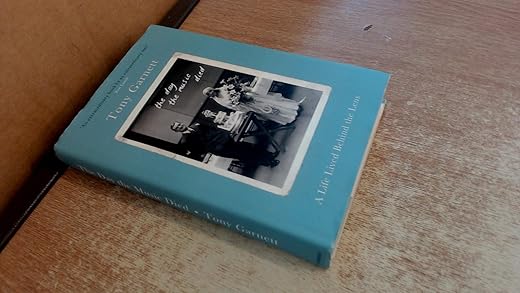

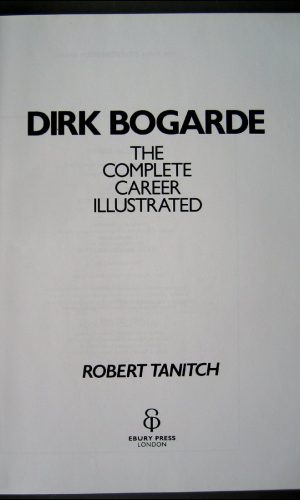
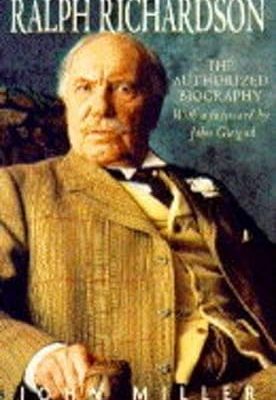
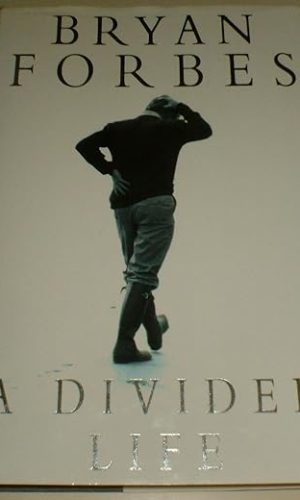
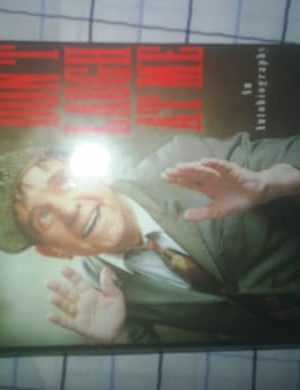
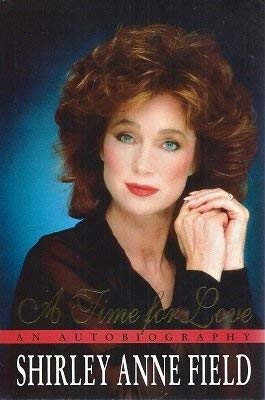
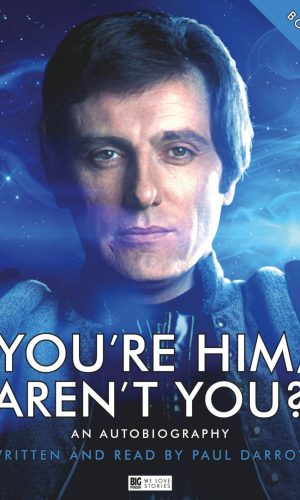
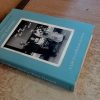
by Amazon Customer
This is a stunning memoir. Once you start reading this book, it becomes impossible to put it down. I found it to be both informative and deeply moving and felt privileged to be allowed to share the highs and lows of Tony Garnett’s life, all told with such vigour and insight. Much of his professional life as a film maker is explained by the experiences of his early years, which shaped him and his talent to observe, to comment and to provoke others to think. No wonder he became such a creative force, with such an ability as a storyteller. He paints pictures with words.
by Mrs
Read as one of our village reading group books.Everyone found tony Garnett’s life story surprising and thought provoking.Very down to earth with no pretentions despit him being in a celebrity circle.Recommended to read.
by Chris Sullivan
This is an absolutely wonderful book by one of the best producers of films shown on BBC Television; it is a must for actors, producers, writers, directors – in fact anyone who has anything to do with the process of film making.
It is not a ‘kiss and tell’ piece and is wonderfully written with passion and feeling and in some places it is very moving. There is no name dropping, with one exception, nor gossip.
The one exception: I got the feeling that a chapter might have been suggested by the publisher, where Paul Newman is mentioned; as I said wonderfully written, but not that chapter and I don’t think he (Tony) liked that period in his life, judging by the writing.
This is a memoir of Tony Garnett; the man, when he worked at the BBC – BBC Television, that is – who turned the drama department in to the National Theatre of Television.
Did the BBC deserve it, or really want it or even earn that phrase or praise?
Tony Garnett certainly deserved the praise for what he achieved there and, in fact, BBC Television Drama is still eating out on the work he did.
He was the producer of The Wednesday Play, so described by the infamous Internet Movie Date Base (IMDb) as a television series.
They were, in fact, ten single dramas (films) starting with Cathy Come Home in 1966 and ending with The Big Flame in 1969. Not forgetting the other IMDb described series called Play for Today, starting with Hard Labour in 1973 and ending with Spongers in 1979.
None of these were, in fact, ‘plays’ or parts of a series, they were full length single movies. They may have been politically motivated but who would not be politically motivated in the sixties and seventies when people in the UK were living in slums?
Between 1966 (Cathy) to 1979 he produced about 35 full length extraordinary films. Films that would win any award these days and films which never even see the desk of drama commissioning editors any more – and that is a pity.
I’m not saying the BBC doesn’t produce good work these days, with the occasional series of Line of Duty and Secret Witness but the single film, the single great modern drama has gone.
In the book you will get to know what happened to the actress Topsy Jane; I remember seeing Topsy Jane in The Loneliness of a Long Distance Runner when the film was first released; I didn’t notice her in particular, or really understand the film, but later, when I saw it again and appreciated it better, I noticed and wondered what had happened to such an exciting young talent. The IMDb didn’t exist and no matter where I looked I couldn’t find anything apart from the fact that she had left the movie Billy Liar and was replaced by Julie Christie. There are some distance shots of Topsy still in Billy Liar, so they say, but that was it.
There is a little more information on the IMDb now but this book tells all as Tony Garnett was married to her and, like the rest of the book, it is a very sad tale.
In fact you will wonder, when you read it, just how Tony Garnett even survived and went on to do the great work he did.
His parents both died when he was very young; up to that time his mother would play the piano and the little Tony would dance and sing with her then suddenly, in a very moving and disturbing chapter, he loses them and he didn’t sing and dance again; the music had died.
His family was split up, he went to live with an aunt and uncle, whilst his brother lived elsewhere and Tony disappeared in to a world of books. Not Biggles, or the Famous Five, but Freud and on to Marx’s Capital (which defeated him) and on the way to books by RD Laing and other psychological and educational writers he devoured the Jacobeans, Shakespeare, the romantic poets and on to English French and Russian novels which must have formed his political ideas and subjects used so usefully later in his producing career.
I have often thought I had a great deal in common with him; I was brought up in Birmingham, albeit it on the other side of the city, and in the book he mentions Oswald Bailey’s Army & Navy Store, where I worked in my first job from school; I supported Aston Villa, as he does – he because he lived on that side of the city (I presume) and me because we were Irish and lived in Balsall Heath and Sparkhill. He mentions David Turner (the writer) – I was in his last TV play for BBC.
We are at the other end of the spectrum on lots of other things, maybe because of that slight difference in our ages – seven years.
He mentions The Beatles and says ‘I Want to Hold Your Hand was written for twelve year olds’ when people of my age, watching them live for the first time, watched them with a male dominated audience (the same age as The Beatles) – at The Ritz, in King’s Heath, Birmingham.
However the next time I saw them, at the same venue, they did play to young teenagers and we couldn’t hear them, so maybe he has a point.
I believe The Beatles had a great hand in changing society from what it was in the fifties to what it became in the seventies, via the swinging sixties. President Regan always thought he brought down the Berlin Wall but he didn’t; it was The Beatles and Levi Jeans.
Just as politicians thought they worked wonders and miracles, when it came to the housing crisis, with the forming of Shelter (the housing and homeless charity) but they didn’t; it was people like Ken Loach and Tony Garnett who did more than any politician, in fact Shelter was formed as a direct result of Cathy Come Home.
In this memoir, (and what is the difference between a memoir and an autobiography), there is a chapter on Dennis Potter, another favourite television writer of mine, but Tony Garnett knew him and worked with him and the information therein is very interesting.
I met Tony Garnett once; it was when he was meeting people for a mini series called Law and Order – mini series is the wrong way to describe the classic series that it turned out to be; I wrote a review about it on the infamous IMDb.
Tony was in a BBC office somewhere with the director Les Blair and there was something about them, something I also noticed when I met Mike Leigh. They looked at me and as they did I got the feeling that they were looking in to my soul, examining every part of of me to see what they could do with me, where they could fit me in to their scheme of things, a little nook or cranny, with their series.
I didn’t get in to it and when I saw it, and I still do see it, I could see why; there was nothing in it for me but there was plenty in this book for me. Thank you Tony; thank you for writing it.
Alfredo Hunter: The Man with the Pen.
by Jean
Deeply touching story of a creative genius whose own life has been scarred by life events yet who has produced films of such impact we still talk of them today. The pages are stalked by tragedy yet inspiring. The time period of the book is vividly evocative and just as I remembered it.
by Dennis James
I found this book to be a wonderfully entertaining true story following the highs and lows of a young boy who suffers a severe trauma, and who escapes loneliness through his love of books.
Intelligent and self motivated, the boy, Tony Garnett, matures into an educated and adventurous young man earning his living first as an actor, before becoming a maverick producer of films and TV plays that challenged viewers prejudices.
Films advocating abortion law reform and the abolition of the death penalty, films about the homeless, and films fearlessly revealing corruption within the British police force.
Tony has many setbacks along the way, such as having to cope with a love that is lost to a cruel mental illness. He is also persistently tormented by devastating flashbacks to his heartbreaking childhood memories and emotions.
It is fascinating to read about Tony`s experiences and relationships with famous writers, actors and directors, as he produces ` Cathy Come Home`, `Kes`, `Between the Lines`, `Ballykissangel`, `Cops`,`This Life`, etc.,
But it is Tony`s talent for telling entertaining stories that made this book a joy for me to read. I think every reader will delight in the brilliant and charming witty remarks spoken by the many eccentric character’s within these pages.
by William Marxuquera
Very interesting. An honest, interesting, intelligent and thought provoking autobiography.
by Caroline Clark
Reading about how Tony grew through his own personal tragedies – by getting on with stuff – and later being open to what the effects had made him miss – makes one more aware of how past difficulties linger on and need to be attended to – can’t judge our forbears for how they dealt with stuff but need to understand how that impacted us – well written and easy to read
by Mrs Norma M Pagedragon
Interesting read.